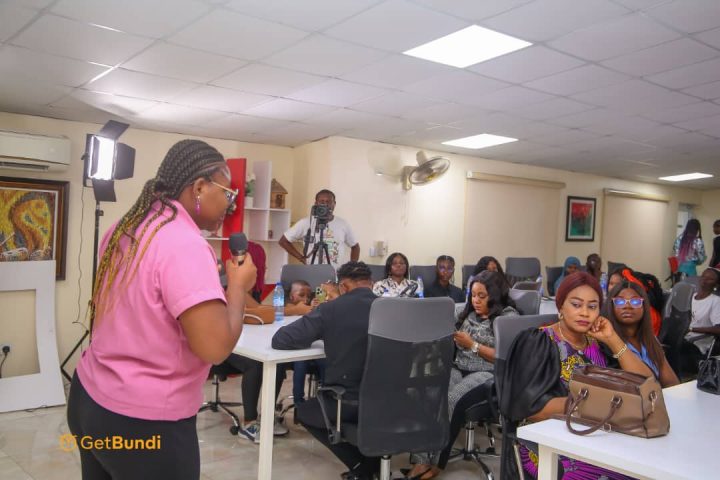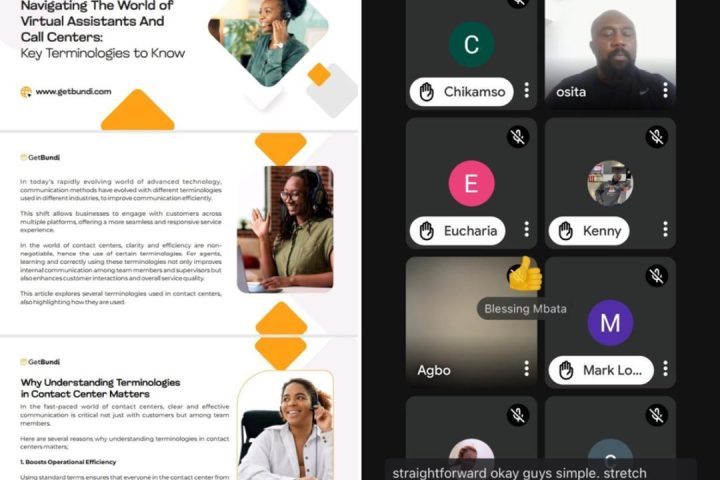Africa, the second largest continent, covering about one-fifth of the total land surface of Earth, is distinctively unique because its population is the youngest amongst all the continents. Studies have shown that Africa currently has a population of 1.2 billion people, 60% of which are under the age of 25, and 29 out of 30 of the world’s countries with the youngest populations are in Africa. World Atlas reports that in Niger alone, where the average woman has at least 8 children, almost 60% of the population is under the age of 18, and these children are mostly uneducated or under-educated.
Although Africa holds 19% of the world’s population aged 19-24, its STEM (science, technology, engineering, and mathematics)capabilities fall behind the rest of the world. We all know that STEM education is a driver of economic performance and thus, essential for helping growing economies compete in the global market, creating technical jobs, and improving wealth. Africa has a huge untapped potential, despite lagging behind other regions in STEM, to transform its global economy due to its unique demographic asset. It is expected that by 2035, sub-Saharan Africa will have a working population larger than the entire rest of the world combined. This is why it is critical for education in Africa to reach new levels, particularly with skills that can create and promote more STEM jobs.
The World Bank reports that less than 10% of college-age students in Africa are enrolled in tertiary institutions. According to www.africa.com, the jobs with the most growth in Africa’s expanding economies are those emanating from STEM subjects, such as Agricultural Engineering, Telecommunications, Structural Engineering, Civil Engineering, Architecture, Geophysics, Actuary Science, Electrical Engineering, and Agricultural Management.
While delivering his keynote address at the Pan African Conference on Education, the Assistant Director-General for Education at UNESCO (United Nations Educational, Scientific, and Cultural Organization), Firmin -Matoko, said: “we need to help Africa tap into scientific inventions and discoveries that are happening around the world, and step up investments in scientific research to enable Africans to be producers of knowledge rather than consumers by embracing the advancement of technology and equipping the youth with relevant knowledge and skills the 21stcentury demands.” Restricted access to STEM subjects would have a major impact on the skills of Africa’s young workforce, and economic development.
The African Union’s Agenda 2063- a long-term strategic framework for the transformation of the African continent over the next 40 years, lists seven aspirations to be achieved by 2063. One of these is that Africa’s youth (which accounts for 19% of the global population aged 15-24, according to the United Nations Economic Commission for Africa) should be guaranteed full access to education, training, skills and technology, and to all necessary resources to realise their full potential.
There is a compulsory basic education cycle for the 5-15-year age groups in middle and higher income countries. At 16 years, most students do continue their education, but this is not compulsory.
Unfortunately, this is not so in Africa. Building on the success of African governments in expanding access to primary education, opening the door to quality, relevant secondary education is the next challenge. Many young Africans are completing primary schooling, and many more will do so in the coming years. This means the number of youngsters who knock at the door of secondary education is vastly increasing, thus creating strong structural pressures on all segments of post-primary schooling.
For most young Africans, secondary education is the last schooling they will receive before entering the workforce. High quality, relevant secondary education which is accessible to all, can prepare youth to enter the workforce, improve productivity, and spur economic transformation, unlocking a virtuous cycle of both human and economic development
An estimated 10 million graduates enter the African workforce each year. By 2040, the continent’s labor force is expected to surpass that of India and China. As a result, quality education is a central element in building an “Africa beyond aid” and lies at the backbone of its development and enduring prosperity. Quality education also has a multiplier effect on achieving the 2030 Sustainable Development Goals.
In his presentation to the Education Department of the Economic Community of West African States ECOWAS, Mr. OsitaOparaugo, the Founder of GetBundi, a STEM based education technology platform said “my team and I believe that it is time for Africa to embrace and prepare its youths for a future driven by technology in order for them to compete globally and the tool of empowerment is STEM with English language and that since very few Africans can afford foreign education in STEM, it is pertinent and crucial to focus on the education in Africa itself”
The current education system in Africa uses outdated methods and is not preparing children for the future. There must be a shift towards science and technology, though the greatest challenges will then be the issues of cost, access & quality and teachers.
Cost.
A significant factor is the opportunity costs to families and parents. To attend lower secondary school, families must still make significant investments over a number of years. For the poorest families, often this burden is weighed against other priorities. Taking part in post primary education in Africa is biased against the poor and mostly females.
Access and Quality.
There is a great demand for opportunities for further learning however, inequity in access and in quality of secondary education, notably at the upper basic education level, in most African countries is a major challenge. Quality and accessible post primary education still remains an illusion to many of Africa’s youth.
Resources and Teachers.
Teachers are an asset,but they have to deliver their services in a satisfactory fashion. This requires a balance between fair compensation for work and results delivered, and for offering remunerations that are in line with economic affordability.
The future success of the African continent lies to a large degree in its ability to hone the skills and talents of its ever-growing youth population and now is the time to rethink secondary education systems, to ensure youth have the skills and knowledge they need.
“Africa’s youth should be guaranteed full access to education, training, skills and technology, and to all necessary resources to realise their full potential” – The African Union






If you are going for most excellent contents like myself, just pay a visit this website every day since it provides quality contents, thanks
Hello! My name is Jerod and I’m pleased to be at aamn.africa. I was born in Luxembourg but now I’m a student at the Virginia Commonwealth University.
I’m normally an industrious student but this term I had to go abroad to visit my kindred. I knew I wouldn’t have time to finish my course work, so I’ve found a great solution to my problem – ESSAYERUDITE.COM –> https://essayerudite.com/write-my-essay/
I had to order my paper, because I was pressed for time to complete it myself. I prefer EssayErudite as my course work writing service because it’s respected and has a lot of experience in this market.
I received my order on time, with proper style and formatting. (course work, 107 pages, 1 days, University)
I never thought it could be possible to order course work from an online writing service. But I tried it, and it was successful!
I would undoubtedly advise this essay writing service to all my friends 😉
Greetings! My name is Davin and I’m happy to be at aamn.africa. I was born in Switzerland but now I’m a student at the Clarkson University.
I’m normally an assiduous student but this half-year I had to travel abroad to see my relatives. I knew I wouldn’t have time to finish my argumentative essay, so I’ve found a great solution to my problem – ESSAYERUDITE.COM >>> https://essayerudite.com/write-my-essay/
I had to order my paper, as I was pressed for time to complete it myself. I chose EssayErudite as my argumentative essay writing service because it’s respected and has a lot of experience in this market.
I received my order on time, with proper style and formatting. (argumentative essay, 91 pages, 4 days, University)
I never thought it could be possible to order argumentative essay from an online writing service. But I tried it, and it was successful!
I would certainly suggest this essay writing service to all my friends 😉
Your method of explaining all in this paragraph is actually
pleasant, all can without difficulty understand it, Thanks a lot.
hello!,I like your writing so a lot! proportion we be in contact more
about your article on AOL? I need an expert on this house to resolve my problem.
Maybe that is you! Taking a look forward to peer you.
my homepage :: solar panel
Thanks very nice blog!
hey there and thank you for your information – I’ve definitely
picked up anything new from right here. I did however expertise
a few technical issues using this website, as I experienced to reload the website many times previous to I could get it to load correctly.
I had been wondering if your web hosting is OK? Not that I’m complaining, but
sluggish loading instances times will sometimes affect your
placement in google and could damage your high quality score if advertising and marketing with Adwords.
Anyway I’m adding this RSS to my e-mail and can look out for much more of your respective exciting
content. Ensure that you update this again very soon.
awesome